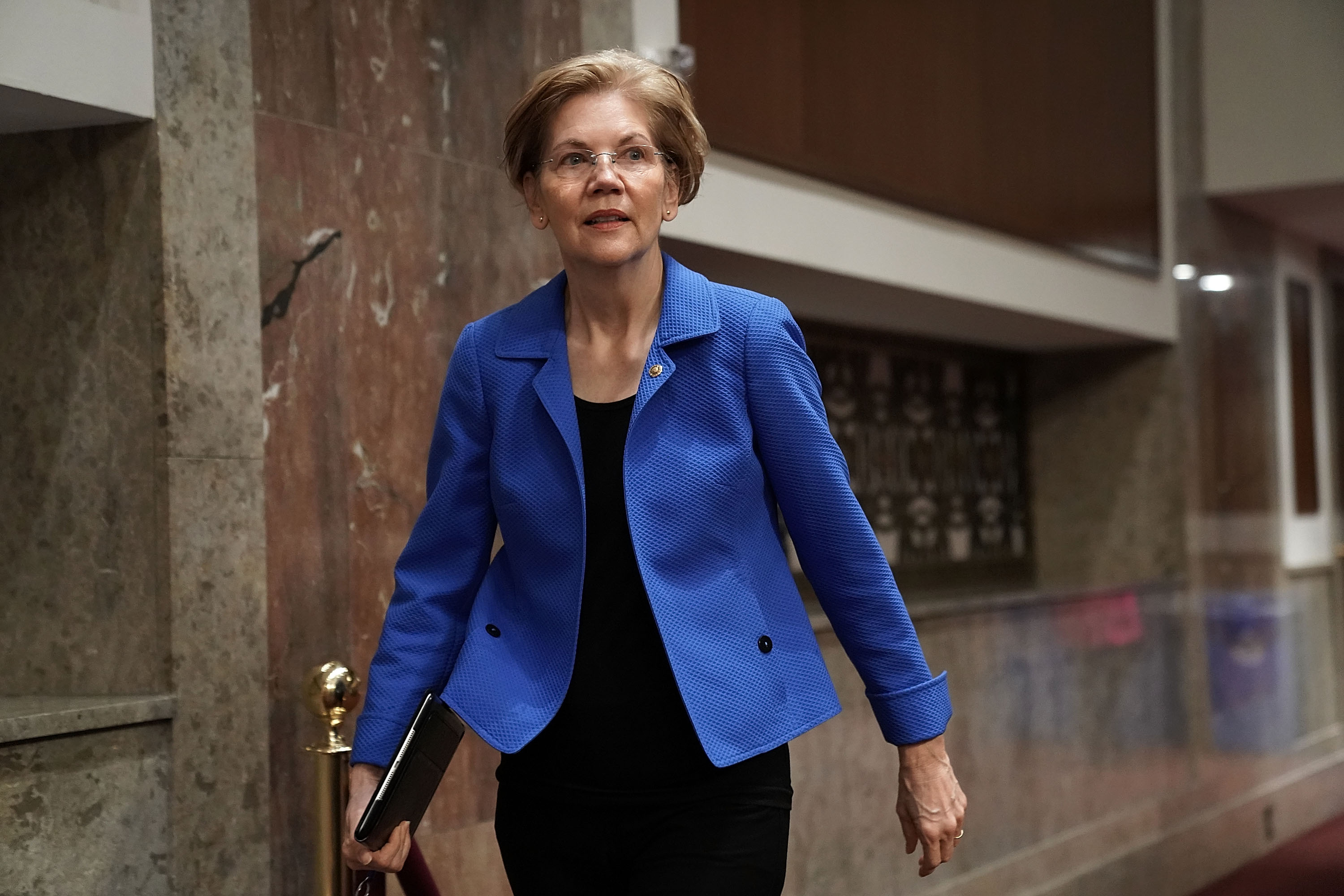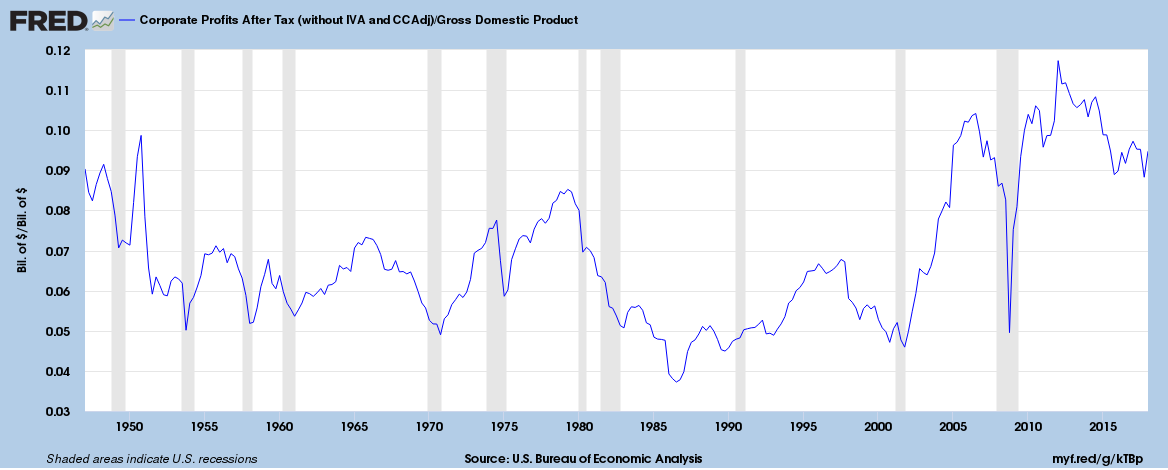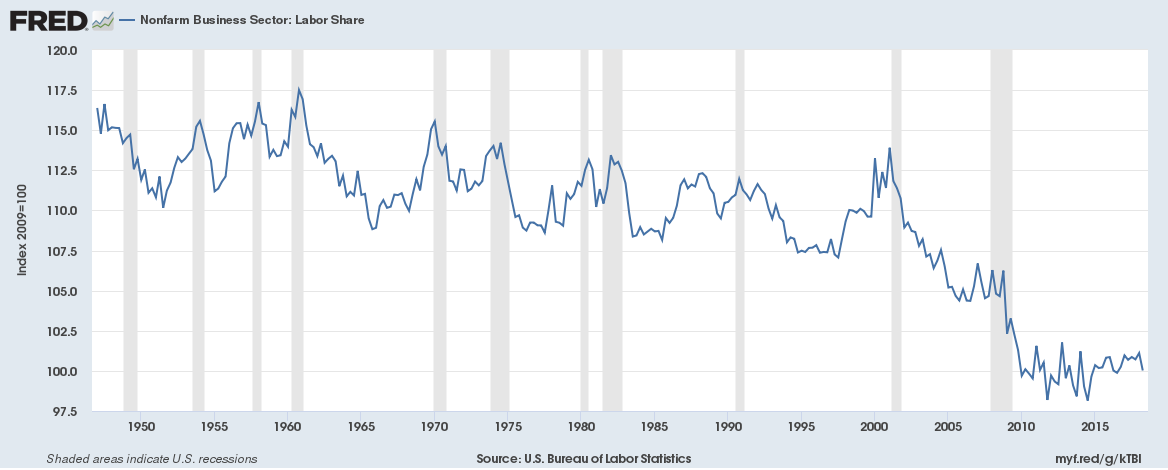What Elizabeth Warren wants
The progressive senator from Massachusetts has chosen her next target. Watch out, corporate America.


A free daily email with the biggest news stories of the day – and the best features from TheWeek.com
You are now subscribed
Your newsletter sign-up was successful
What does Elizabeth Warren want? Maybe she wants to be America's 46th president. We just don't know. But one thing we know for sure is that she wants to radically change the way corporations are governed in the United States.
The Democratic senator from Massachusetts has a plan to roll back the shareholder value revolution and force corporations to consider other stakeholder interests aside from the short-term share price. Any corporation with more than $1 billion in yearly revenue would have to get a new federal charter, which would stipulate that 40 percent of the company's board must be elected by the firm's employees (or "worker co-determination"), require 75 percent board approval for political spending, and forbid executives from selling any of the firm's shares until five years after they receive them.
This is a great idea — and a good look into the mix of radicalism and moderation that constitutes Warren's approach to public policy. She is probably the deepest thinker about the structural details of the American economy in Congress, and this program is classic Warren.
The Week
Escape your echo chamber. Get the facts behind the news, plus analysis from multiple perspectives.

Sign up for The Week's Free Newsletters
From our morning news briefing to a weekly Good News Newsletter, get the best of The Week delivered directly to your inbox.
From our morning news briefing to a weekly Good News Newsletter, get the best of The Week delivered directly to your inbox.
It's important to understand at the outset what corporations are. Corporations are not people, my friends. A corporation is a legal construct of the state, and seeking the state's permission to operate is what it means to create a corporation. Property in land is also a political construct, but unlike physical pieces of ground, corporations did not exist at all before states passed a bunch of laws.
This is why it's absurd that so many conservatives are freaking out, falsely suggesting that Warren's plan is some massive nationalization of private enterprise. It's not — it just changes the rules around corporate legal structures. The government wouldn't be directly appointing individuals to each corporate board and directly setting individual executive salaries and corporate rules. It would just be changing the method by which boards are selected and setting general rules about compensation and political spending.
As is, U.S. corporations are mostly chartered by state governments (not at the federal level), but the principle is the same — and they still must follow a slew of federal laws around stock trading, board elections, and so forth. A federal corporate charter system would be considerably more legitimate than the current state system, since most big corporations are chartered in Delaware due to their lax regulations. The 3 percent of Americans who live in that state get vastly disproportionate influence over businesses that operate over the entire country.
It is true that the rules around creating corporations are fairly permissive at present. But it is wholly legitimate for the state to mess around with the rules creating corporations that it created in the first place.
A free daily email with the biggest news stories of the day – and the best features from TheWeek.com
So what is motivating Warren's thinking here? These two graphs surely have a lot to do with it. Here is the share of GDP going to corporate profits:

And here is the share of business output going to labor:

Wages are far too low, while corporate profits are far too high — and as Warren points out, the great majority of those profits are now being immediately kicked out to shareholders. In the early 1980s, less than half of the earnings of large corporations went to shareholders, but between 2007 and 2016, the figure was 93 percent. What's more, there is strong evidence that this corporate short-termism is not just harming workers, but also investment, innovation, and productivity growth.
In one sense, Warren's plan is a decidedly reformist measure, attempting to rescue capitalism rather than bury it. Corporations would not be taken into direct state ownership, nor would their shares be scooped up into a social wealth fund so that the population as a whole can get a cut of capital income. As Warren told CNBC, "I am a capitalist. Come on. I believe in markets."
But in another sense, this would be a spectacular blow against the top 1 percent. Giving workers 40 percent of corporate board votes would unquestionably cause a gigantic increase in the labor share of the corporate surplus, and probably cut considerable value out of the stock market (since so many share prices are heavily inflated by stock buybacks). Trillions of dollars in wealth are at stake. It would also give workers a measure of control over the conditions of work, an idea many free marketeers intensely loathe.
Modern corporations are often run as absolute dictatorships under the iron fist of self-aggrandizing billionaires. Warren's reform would make them more like little republics, accountable to a broader swathe of the people under their authority.
So what does Elizabeth Warren want? She wants to empower workers and protect them from vampiric corporations. It may be reformist, but it's the kind of reform with revolutionary implications.
Ryan Cooper is a national correspondent at TheWeek.com. His work has appeared in the Washington Monthly, The New Republic, and the Washington Post.
-
 Political cartoons for February 19
Political cartoons for February 19Cartoons Thursday’s political cartoons include a suspicious package, a piece of the cake, and more
-
 The Gallivant: style and charm steps from Camber Sands
The Gallivant: style and charm steps from Camber SandsThe Week Recommends Nestled behind the dunes, this luxury hotel is a great place to hunker down and get cosy
-
 The President’s Cake: ‘sweet tragedy’ about a little girl on a baking mission in Iraq
The President’s Cake: ‘sweet tragedy’ about a little girl on a baking mission in IraqThe Week Recommends Charming debut from Hasan Hadi is filled with ‘vivid characters’
-
 The billionaires’ wealth tax: a catastrophe for California?
The billionaires’ wealth tax: a catastrophe for California?Talking Point Peter Thiel and Larry Page preparing to change state residency
-
 Bari Weiss’ ‘60 Minutes’ scandal is about more than one report
Bari Weiss’ ‘60 Minutes’ scandal is about more than one reportIN THE SPOTLIGHT By blocking an approved segment on a controversial prison holding US deportees in El Salvador, the editor-in-chief of CBS News has become the main story
-
 Has Zohran Mamdani shown the Democrats how to win again?
Has Zohran Mamdani shown the Democrats how to win again?Today’s Big Question New York City mayoral election touted as victory for left-wing populists but moderate centrist wins elsewhere present more complex path for Democratic Party
-
 Millions turn out for anti-Trump ‘No Kings’ rallies
Millions turn out for anti-Trump ‘No Kings’ ralliesSpeed Read An estimated 7 million people participated, 2 million more than at the first ‘No Kings’ protest in June
-
 Ghislaine Maxwell: angling for a Trump pardon
Ghislaine Maxwell: angling for a Trump pardonTalking Point Convicted sex trafficker's testimony could shed new light on president's links to Jeffrey Epstein
-
 The last words and final moments of 40 presidents
The last words and final moments of 40 presidentsThe Explainer Some are eloquent quotes worthy of the holders of the highest office in the nation, and others... aren't
-
 The JFK files: the truth at last?
The JFK files: the truth at last?In The Spotlight More than 64,000 previously classified documents relating the 1963 assassination of John F. Kennedy have been released by the Trump administration
-
 'Seriously, not literally': how should the world take Donald Trump?
'Seriously, not literally': how should the world take Donald Trump?Today's big question White House rhetoric and reality look likely to become increasingly blurred
